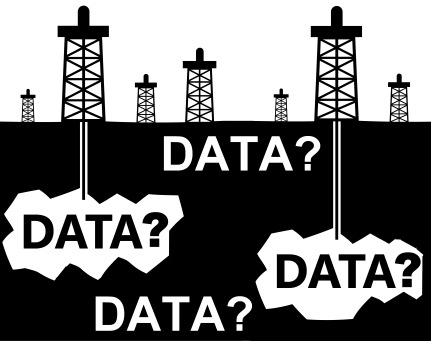As digital technologies become more prevalent, the digital economy will become the foundation of the modern economy.
The rapid spread of digital technology is changing many economic and social components.
The creation and use of digital data can be used for development purposes and to solve societal problems.
Data has become a new economic resource for creating and acquiring value.
Digital data is the core of all rapidly emerging digital technologies, such as data analytics, AI, blockchain, IoT, cloud computing and all Internet -based services.
Data control is strategically important to be able to turn it into digital intelligence.
In almost every value chain, the ability to collect, store, analyse and modify data generates additional strengths and capabilities as well as enhances competitive advantage.
Digital technologies enable governments to increase the scope and quality of public services .
e-Government portals improve the efficiency of service delivery, such as application for licences, tax filing and procurement processes.

Digital economy is defined as economic and social activities that involve the production and use of digital technology by individuals, businesses, and government.
Malaysian Government has role out digital economy bluepint (MyDIGITAL) that envisions Malaysia becoming the regional lead in digital economy and to achieve inclusive, responsible and sustainable socioeconomic development.
Its three objectives are to encourage industry players to become creators, users and adopters of innovative business models, harness human capital to thrive in the digital economy and nurture an integrated ecosystem that allows society to embrace digital economy.
To promote the development of the digital state, a high-speed, reliable digital infrastructure is required.
Infrastructure improvements must address urban-rural and economic divides to achieve inclusive digitalization.
Initiatives by government can also help by providing devices (such as laptops and tablets) to get people online, backed up by support and training for individuals to improve digital literacy. But offline channels will remain vital to ensure all citizens retain equal access to public services.
The digital economy is an outcome of the 4IR, where digital technologies are being widely adopted.
4IR induces fundamental changes in the economy, similar to previous industrial revolutions.
In November 2020, Malaysia has set up the National Digital Economy and 4IR Council chaired by the Prime Minister to accelerate local capabilities in embracing digitalisation.
The Malaysian government since the 1990s has placed emphasis on efforts to harness the potential of technology for the transformation of the country.
This was proven by the establishment of the Malaysia Digital Economy Corporation (MDEC) in 1996 whose role, among others, was to advise the government on ICT and multimedia development as well as facilitate the launch of Multimedia Super Corridors (MSC) nationwide in the early 2000s.
The Government has intensified and focused on digitization, use of technology and connectivity by introducing the National Broadband Initiative in 2010 as the mast of connectivity in accelerating internet usage in Malaysia and this fortitude is reflected in the government’s overall plan in the 11MP which identifies ICT as an enabler required for a knowledge -based economy.
Other initiatives include the National eCommerce Strategic Roadmap launched in 2014 and the Malaysian Productivity Development Plan in 2017 to strengthen digitalisation among micro, small and medium enterprises (MSMEs) through eCommerce and the use of innovative technologies.
In 2017, the Digital Free Trade Zone was also launched to help cross -border eCommerce and enlarge global market access for MSMEs.
The public sector, which is the catalyst and facilitator of the implementation of the country’s physical and economic development, has also been given special attention to enable the country’s transformation agenda to be implemented smoothly.
To that end, the Government has taken the Initiative to modernize and improve data sharing in the public sector starting in early 2010, which includes the Public Sector Big Data Analysis Project (started in 2015) and the Public Sector ICT Strategic Plan, 2016-2020.
This was introduced to perform data analysis to gain insights and improve public service delivery.
In 2019, the Public Sector Modernization and Digitization Committee was established as a governance mechanism for the implementation and monitoring of digitization initiatives.
To ensure that no Malaysian is left behind to follow the wave of digitalization, it is time we lay the foundation for the nation’s transformation towards a developed digital economy.
This foundation means building infrastructure, facilitating innovation and creating an ecosystem for us to contribute to producing a higher standard of living.
The MyDigital Blueprint introduced represents Malaysia’s aspirations and actions in accelerating the growth of the digital economy to enrich and improve the well -being of all Malaysians.
It is important to ensure that all segments of the population are given equal opportunities to be equipped with the set of knowledge and skills necessary to thrive in the digital economy and achieve inclusive, responsible and sustainable socio -economic development.





